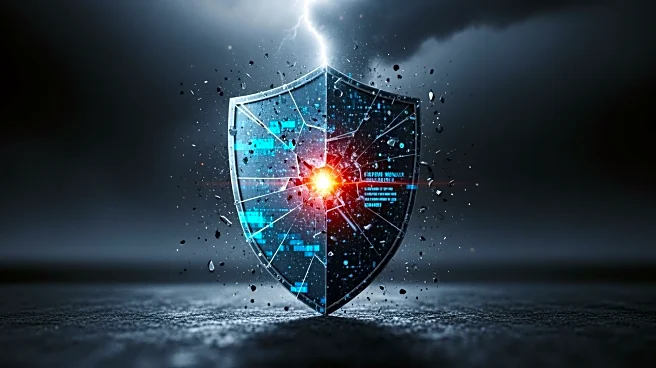What's Happening?
Cybersecurity researchers have identified a cyber intrusion linked to the China-based group Salt Typhoon, exploiting a vulnerability in Citrix NetScaler Gateway. The operation, observed by Darktrace, involved
advanced methods such as DLL sideloading and zero-day exploits, which are known techniques used by the group to infiltrate systems while avoiding standard detection measures. Salt Typhoon, also known as Earth Estries, GhostEmperor, and UNC2286, has been active since at least 2019 and is associated with high-impact cyber campaigns targeting critical sectors like telecommunications, energy, and government systems across more than 80 countries. The group has demonstrated long-term persistence in victim networks, using custom malware and advanced evasion techniques to collect sensitive data and disrupt essential services.
Why It's Important?
The activities of Salt Typhoon highlight the ongoing threat posed by advanced persistent threat (APT) groups to critical infrastructure worldwide. By exploiting vulnerabilities in widely used technologies from vendors such as Citrix, Fortinet, and Cisco, these groups can gain access to sensitive data and potentially disrupt essential services. The United States, along with other regions like Europe, the Middle East, and Africa, remains a frequent target, underscoring the need for robust cybersecurity measures. The incident emphasizes the importance of proactive defense strategies, where anomaly-based detections play a critical role in identifying early-stage activity and preventing significant damage.
What's Next?
Organizations affected by Salt Typhoon's activities may need to enhance their cybersecurity protocols, focusing on anomaly-based detection methods to identify subtle deviations and correlate disparate signals. As attackers increasingly blend into normal operations, detecting behavioral anomalies becomes essential. Companies may also need to patch vulnerabilities in technologies from Citrix, Fortinet, and Cisco to prevent further exploitation. The cybersecurity community will likely continue monitoring Salt Typhoon's activities to better understand their tactics and develop more effective countermeasures.
Beyond the Headlines
The intrusion by Salt Typhoon reflects broader implications for global cybersecurity, particularly the challenges posed by APT groups that use sophisticated techniques to evade detection. The use of legitimate software and layered communication methods by these groups complicates traditional security measures, necessitating a shift towards more dynamic and adaptive defense strategies. This incident also highlights the geopolitical dimensions of cybersecurity, as nation-state actors increasingly target critical infrastructure to achieve strategic objectives.









